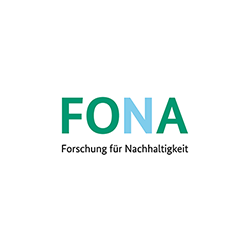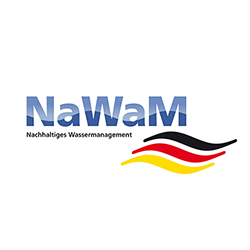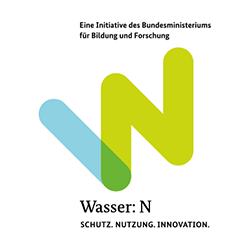Reuse of filter rinse water from groundwater treatment to secure drinking water supply
Background:
In the FITWAS project, one of Germany's largest water utilities (Hamburg Wasser) and the water utility with the largest supply area in Germany (OOWV) are cooperating with a water research institution (DVGW research center TUHH) and two technology companies (CERAFILTEC and PHL) as well as the Federal Environment Agency to advance the reuse of filter rinse waters from drinking water treatment and thus contribute to securing the water supply.
The aim of the FITWAS project is, on the one hand, to increase the availability of drinking water by reusing filter rinse water from groundwater treatment. To this end, a comprehensive operating concept including a novel membrane process is to be developed. Secondly, the aim is to leverage the high recycling potential that filter sludge holds.
In groundwater treatment in Germany, filter rinse water currently accounts for between 1% and 4% of the elevated groundwater. These filter rinse waters, which contain iron and manganese, are currently generally disposed of as wastewater and are thus lost to the drinking water supply. At the same time, the demand for drinking water is increasing significantly in the region as a result of climate change and ongoing structural change.
In order to develop innovative and feasible processes for the recycling of filter rinse water as well as the recovery of filter sludge, membrane processes with different process concepts and membrane modules/materials are investigated in FITWAS in comparison to conventional treatment (e.g. sand filtration) or disposal. Practical work is carried out both in the laboratory and at four different waterworks sites. In an innovative approach, a process based on submerged ceramic membranes is used, which is expected to have advantages in energy consumption and operational stability.
Aims:
Based on the overall project objective of process development for the reuse of filter rinse waters and recycling of filter sludge, the project will work towards the following scientific and technical work objectives.
A recommendation is to be developed as to which membrane filtration process configuration is suitable under which boundary conditions for the treatment of filter rinse waters from groundwater treatment (pressure membrane filtration versus vacuum membrane filtration, different membrane materials and module shapes).
The achievable filtrate quality is to be described and the recyclability of the filtrate into the raw water stream to be treated is to be evaluated, also under legal aspects. In parallel, utilization options for the filter sludge are to be evaluated and tested.
Operating parameters including cleaning strategies for stable and energy-efficient operation of membrane filtration for filter rinse water recovery are to be developed.
Finally, the possible measures for a sustainable implementation are to be derived for German water utilities. In this context, the storage of the filter rinse waters as well as the treatment routes of the filter sludge are of particular importance.



